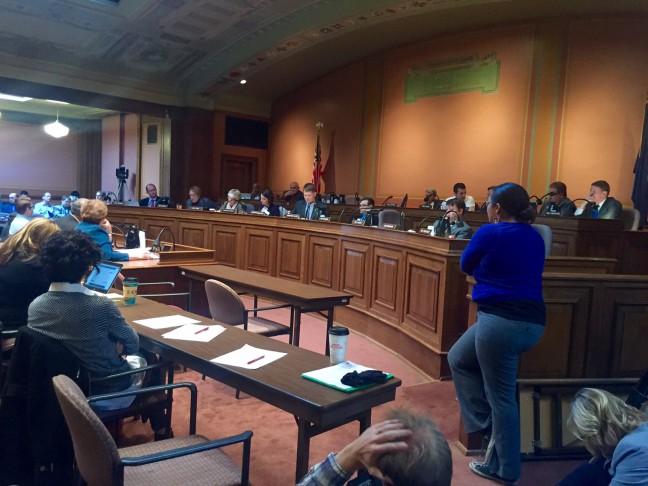In light of the controversies around the bill that limits transgender students’ ability to use bathrooms and locker rooms at school, the state Assembly Committee on Education gathered Thursday to hear public voices, many of which were emotional.
The bill, authored by Rep. Jesse Kremer, R-Kewaskum, and Sen. Stephen Nass, R-Whitewater, aims to designate a specific gender for each bathroom and locker room in state school districts, which means students cannot use bathrooms and locker room facilities labeled for their opposite biological gender, according Kremer’s statement.
Bill would tighten restrictions on gender-specific bathrooms, locker rooms in schools
This proposal has placed transgender students in a difficult position, various speakers said at the hearing.
LGBTQ communities in the state strongly oppose the bill, describing it as a matter of discrimination rather than safety.
“The [LGBTQ] community was not consulted at all about this bill, when we are really the people the bill’s affecting,” Noah Anderson, a junior from Madison East High School who identifies as a transgender boy, said at the hearing.
Anderson said their school installed a multi-stall unisex bathroom, which they said is a great leap in protecting LGBT rights. The bill, which Anderson called a “solution looking for a problem,” would take this step away from transgender students.
Rep. JoCasta Zamarripa, D-Milwaukee, who opposes the bill, said in a statement that instead of responding to an actual issue in Wisconsin, the bill creates a “barrage against the LGBT community,” enforcing discrimination against transgender students who already suffer high depression and suicide rates.
Evolving transgender rights: Local, national calls for change
But defenders of the bill said it is necessary to protect the privacy of students who are uncomfortable sharing bathrooms or locker rooms with transgender students.
Rep. David Murphy, R-Greenville, said students who have been sexually assaulted should be taken into consideration during decision-making for this bill.
The percentage of students who have endured sexual violence, Murphy said, might trump the percentage of transgender students in the state. According to Julaine Appling, president of Wisconsin Family Action, transgender individuals comprise 3/10 of 1 percent of the entire U.S. adult population.
Clare Craven, a real estate agent from Sparta, said he could not endure the idea of his granddaughter showering at school when any male identified as transgender could walk in and shower alongside her. The fact that exposing her body to a strange “man” is a felony in society, but encouraged at school, does not make sense, Craven said.
But many speakers testified passionately against the bill, gaining support of some Assembly members.
After one woman detailed her transgender son’s suicide as testimony against the bill, Rep. Sondy Pope, D-Cross Plains, became so emotional that she could not comment at first.
“The highest cause of suicide of teenagers in this country is sexual identity issues,” she said. “For us to bring this bill forward without that knowledge … is immoral.”
The bill has not yet been scheduled for a floor session in either chamber.













